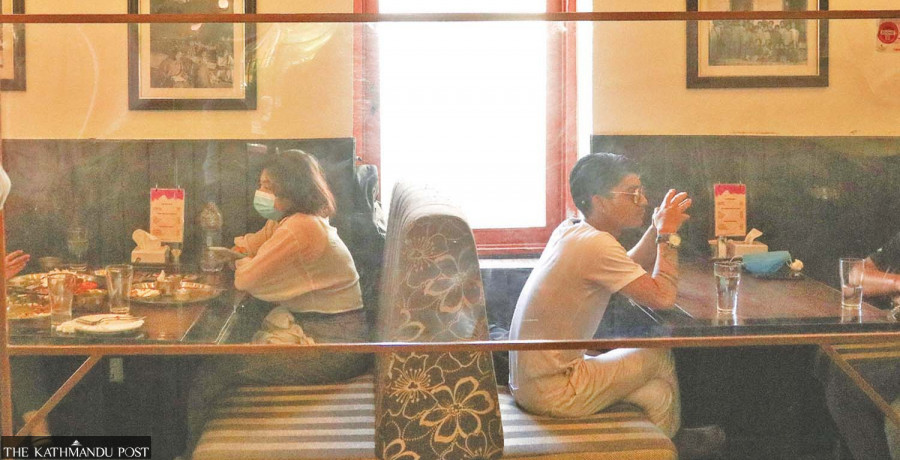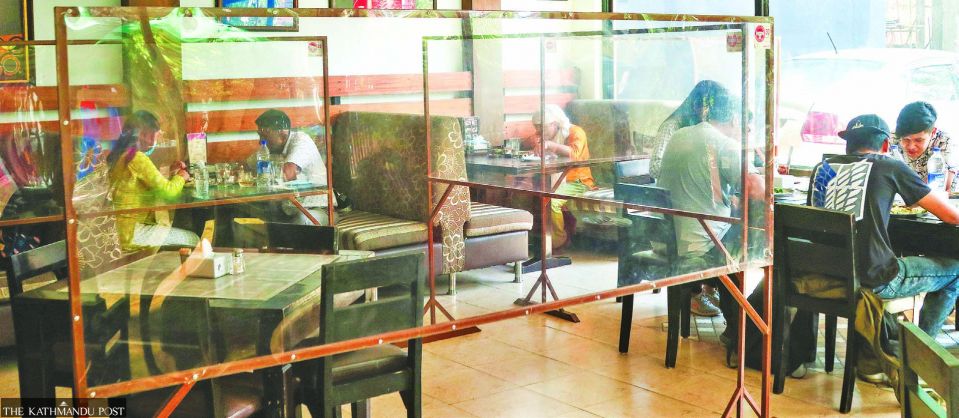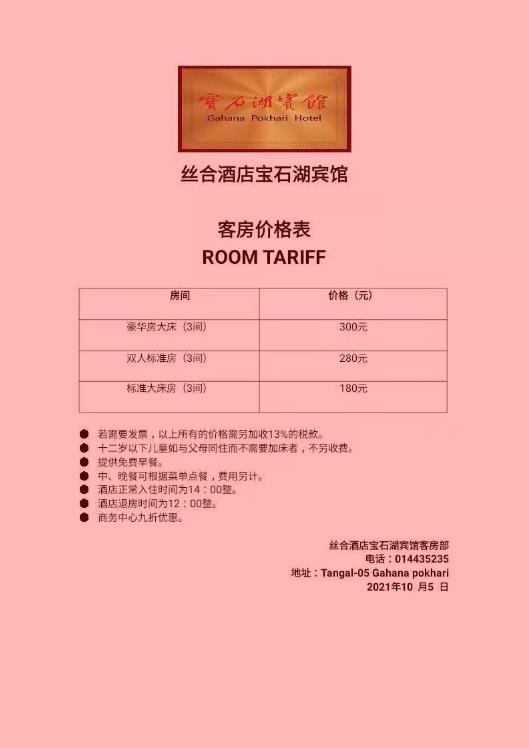
The Kathmandu District Court, in a landmark ruling, has ordered restaurants, hotels and resorts not to charge their customers more than the price listed on the menu.
Delivering the verdict on a consumer case filed by journalist Madan Dhungana on August 21, Justice Basudev Poudel declared that extra charges cannot be added to the menu price.
This effectively prevents businesses from adding 13 percent value added tax (VAT) and 10 percent service charge to the bill as they have been doing.
Dhungana filed a case at the Kathmandu District Court against Green Valley Getaway, Budhanilakantha for adding service charge and VAT to the menu price on January 6.
According to advocate Manish Kumar Shrestha who handled the case, the landmark verdict has established a legal basis that if any restaurant or hotel charges more than the menu price, it will be deemed cheating.
“Customers too need to be aware of such issues and file a case instantly if they are charged more than the menu price,” Shrestha said.
The court also ordered Green Valley Getaway to pay Dhungana Rs10,000 as compensation.
“The tax office needs to notify all its offices in the country that restaurants and hotels should not add extra costs to the menu price,” Shrestha said. “A strict inspection needs to be done in restaurants and hotels so that consumers do not get cheated.”
In such cases, the owners can be jailed for three to six months and fined Rs200,000 to Rs250,000, according to lawyers.
The service charge issue is not new. Hotels and restaurants have been levying a service charge on food and beverage bills since 2007.
The mandatory service charge system came into force on January 1, 2007.
Since then, hotel and restaurant customers have been paying 24.3 percent more than the menu price—10 percent compulsory service charge, 13 percent VAT and 1.3 percent service tax. The VAT and service tax go to the government.
As per an agreement signed in 2007, employees get 68 percent and management gets 32 percent of the amount collected as service charge.
The service charge was made mandatory in 2007 in a bid to narrow the differences between hotel management and employees when their dispute reached a peak.
In June 2018, Hotel Association Nepal and the Nepal Tourism and Hotel Labourers Association ended a two-year row over sharing the service charge paid by consumers.
They agreed that hotel employees would get 72 percent, the hotel management would get 23 percent, Hotel Association Nepal would get 2 percent and the three trade unions affiliated to the Nepali Congress, CPN-UML and CPN (Maoist Centre) would get 1 percent each.
 Restaurants are not happy with the court’s verdict. Post File Photo
Restaurants are not happy with the court’s verdict. Post File Photo
Consumer activists had filed a case against the service charge and it remained undecided.
In 2017, the Indian government approved guidelines on service charge stating that the charge should be voluntary and not mandatory.
“Hotels and restaurants should not decide how much service charge is to be paid by the customer and it should be left to the discretion of the customer,” according to the guidelines.
Apart from the service charge, businesses in Nepal levy a double tax on alcoholic beverages. According to consumer rights activists, the tax on alcohol is prepaid, but restaurants still add extra VAT to the bill.
Restaurants are not happy with the court’s verdict.
“We strongly condemn the court decision. This is totally unjust on restaurants,” Araniko Rajbhandari, president of the Restaurant and Bar Association Nepal, told the Post.
Services like electricity, telecommunications, hotels and hospitals, among others, have been collecting service charges on top of the bill from their customers, he said.
“If the verdict applies to us, it should be implemented in all sectors. The definition of service charge needs to be clear," said Rajbhandari who owns ND’s Café and Restaurant.
“Though we add a service charge to the bill, we give 48 percent of the total amount to the workers,” he said. “In other sectors, they don’t distribute the service charge to their employees,” he said.
The Restaurant and Bar Association of Nepal announced in January 2019 that the 10 percent service charge added to the meal bill had been made optional, drawing smiles from customers and frowns from restaurant workers.
The association said the service charge would be left to the discretion of diners and no longer be mandatory.
“We have decided to ask the government, after Dashain, to create a proper definition of the service charge.”
The government has set a minimum monthly salary of Rs13,450 for all industrial workers.
Restaurant workers say that as they are getting far below the minimum pay set by the government, they need the extra Rs8,000 to Rs9,000 they earn through the service charge.
The basic salary is very low and is compensated by the tips collected as service charge, they say.












